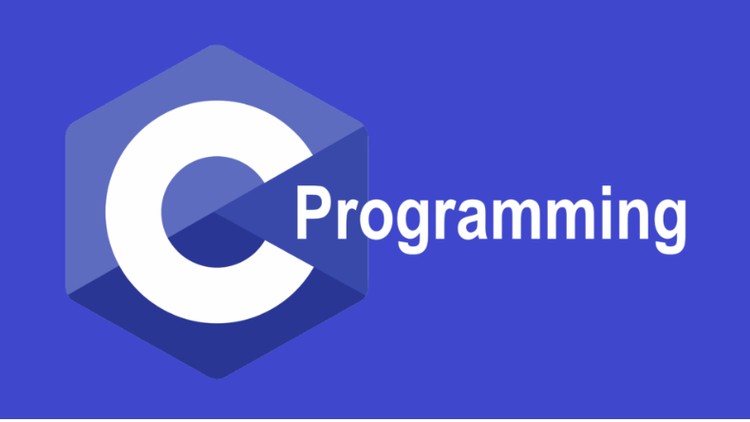(C Programming Tutorials)
C Storage Class
In this tutorial, you will learn about scope and lifetime of local and global variables. Also, you will learn about static and register variables.
Type refers to the data type of a variable. And, storage class determines the scope, visibility and lifetime of a variable.
There are 4 types of storage class:
- automatic
- external
- static
- register
Local Variable
The variables declared inside a block are automatic or local variables. The local variables exist only inside the block in which it is declared.
Let’s take an example.
#include <stdio.h>
int main(void){
for (int i = 0; i < 5; ++i) {
printf("C programming");
}
// Error: i is not declared at this point
printf("%d", i);
return 0;
}When you run the above program, you will get an error undeclared identifier i. It’s because i is declared inside the for loop block. Outside of the block, it’s undeclared.
Let’s take another example.
int main(){
int n1; // n1 is a local variable to main()
}
void func(){
int n2; // n2 is a local variable to func()
}
In the above example, n1 is local to main() and n2 is local to func().
This means you cannot access the n1 variable inside func() as it only exists inside main(). Similarly, you cannot access the n2 variable inside main() as it only exists inside func().
Global Variable
Variables that are declared outside of all functions are known as external or global variables. They are accessible from any function inside the program.
Example 1: Global Variable
#include <stdio.h>
void display();
int n = 5; // global variable
int main(){
++n;
display();
return 0;
}
void display(){
++n;
printf("n = %d", n);
}
Output
n = 7
Suppose, a global variable is declared in file1. If you try to use that variable in a different file file2, the compiler will complain. To solve this problem, keyword extern is used in file2 to indicate that the external variable is declared in another file.
Register Variable
The register keyword is used to declare register variables. Register variables were supposed to be faster than local variables.
However, modern compilers are very good at code optimization, and there is a rare chance that using register variables will make your program faster.
Unless you are working on embedded systems where you know how to optimize code for the given application, there is no use of register variables.
Static Variable
A static variable is declared by using the static keyword. For example;
static int i;
The value of a static variable persists until the end of the program.
Example 2: Static Variable
#include <stdio.h>
void display();
int main(){
display();
display();
}
void display(){
static int c = 1;
c += 5;
printf("%d ",c);
}
Output
6 11
During the first function call, the value of c is initialized to 1. Its value is increased by 5. Now, the value of c is 6, which is printed on the screen.
During the second function call, c is not initialized to 1 again. It’s because c is a static variable. The value c is increased by 5. Now, its value will be 11, which is printed on the screen.
Disclaimer: The information and code presented within this recipe/tutorial is only for educational and coaching purposes for beginners and developers. Anyone can practice and apply the recipe/tutorial presented here, but the reader is taking full responsibility for his/her actions. The author (content curator) of this recipe (code / program) has made every effort to ensure the accuracy of the information was correct at time of publication. The author (content curator) does not assume and hereby disclaims any liability to any party for any loss, damage, or disruption caused by errors or omissions, whether such errors or omissions result from accident, negligence, or any other cause. The information presented here could also be found in public knowledge domains.
Learn by Coding: v-Tutorials on Applied Machine Learning and Data Science for Beginners
Latest end-to-end Learn by Coding Projects (Jupyter Notebooks) in Python and R:
All Notebooks in One Bundle: Data Science Recipes and Examples in Python & R.
End-to-End Python Machine Learning Recipes & Examples.
End-to-End R Machine Learning Recipes & Examples.
Applied Statistics with R for Beginners and Business Professionals
Data Science and Machine Learning Projects in Python: Tabular Data Analytics
Data Science and Machine Learning Projects in R: Tabular Data Analytics
Python Machine Learning & Data Science Recipes: Learn by Coding
R Machine Learning & Data Science Recipes: Learn by Coding
Comparing Different Machine Learning Algorithms in Python for Classification (FREE)
There are 2000+ End-to-End Python & R Notebooks are available to build Professional Portfolio as a Data Scientist and/or Machine Learning Specialist. All Notebooks are only $29.95. We would like to request you to have a look at the website for FREE the end-to-end notebooks, and then decide whether you would like to purchase or not.
Python tutorials for Business Analyst – Python Global Keyword
